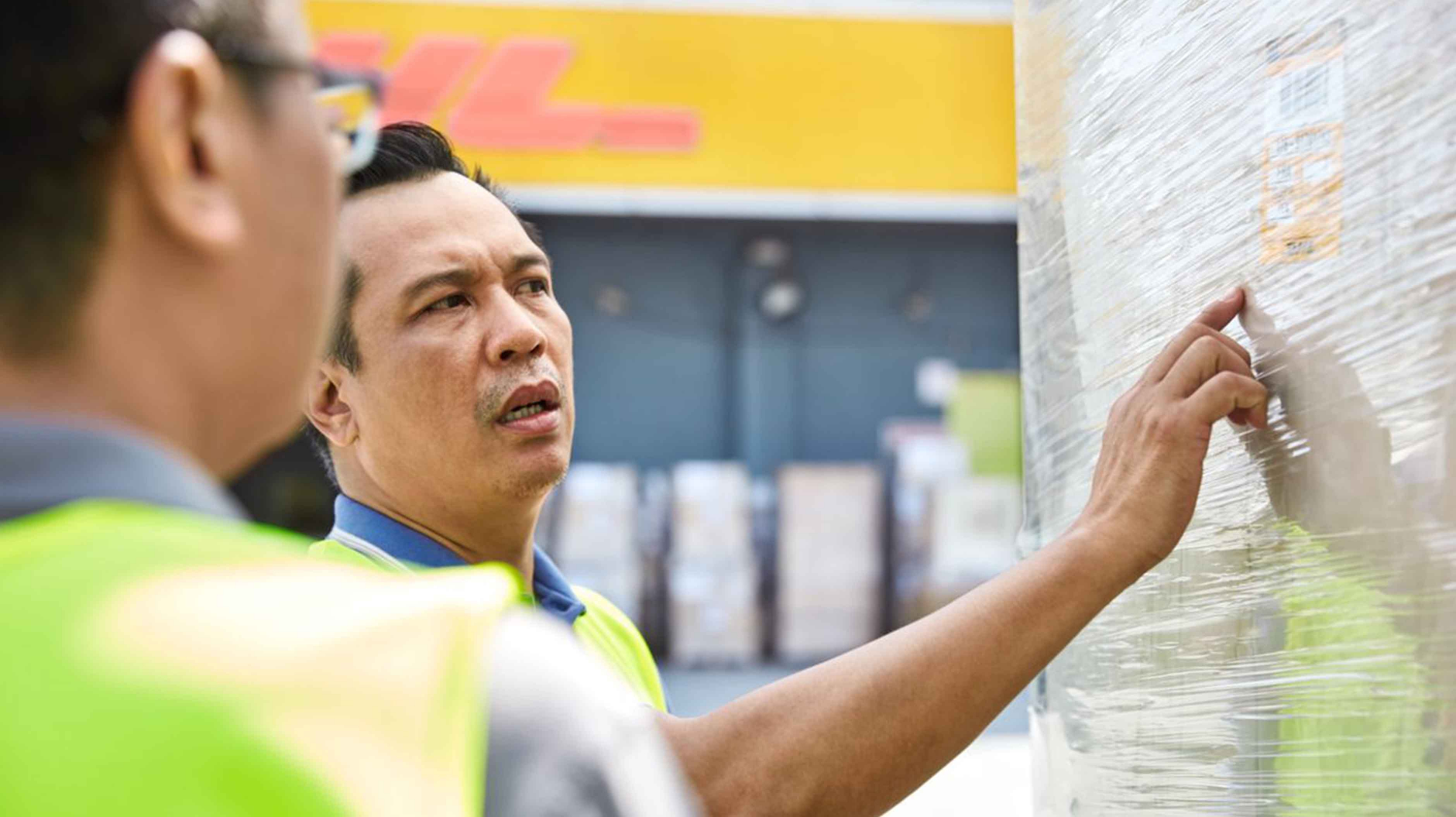DHL is a recognized carrier of dangerous goods. As a leading transport and logistics company, DHL Express adheres to the following regulations:
- IATA regulations for air transport, applicable in all countries operating under ICAO regulations and on all airlines operating under IATA regulations
- ADR regulations for road transport, applicable in all countries that have incorporated the ADR convention into their legislation, and in addition, within Europe, the EC directives relating to the transport of dangerous goods (safety advisor for the transport of dangerous goods)
- Shippers are responsible for the proper preparation of their shipment and must confirm whether their shipment of dangerous goods is being transported by air or road.
If you are not sure which regulations apply to your shipment, please contact our Customer Service and ask for your local Dangerous Goods expert.
Shipping conditions
Prohibited substances:
- Dangerous Goods Waste
- War Ammunition
Acceptance depending on:
- Product/service type
- The DHL network involved: national/local restrictions and operator-imposed restrictions
Customer Approval: Dangerous goods are accepted only from approved customers.
Dangerous goods shipments must be prepared according to the guidelines of the relevant Dangerous Goods legislation such as IATA / ICAO:
- The goods must be properly packaged, marked and labelled.
- The required documents must be completed: A Shipper's Declaration for Dangerous Goods, if applicable, must only be signed by the shipper and must be attached to the shipment.
- All state or operator derogations must be complied with.
Traffic Approval: Dangerous Goods shipments will only be accepted if booked prior to pick-up and approved by DHL Express.
Dangerous Goods Cost
Additional costs are always charged for the transport of dangerous goods.
Important facts and information
The transport of dangerous goods poses a risk if the goods are not properly packed or handled. If the goods are hidden, mis-declared, not declared at all, or incorrectly packaged or labeled, this poses a health and safety hazard.
Did you know that flavourings, perfumes, chemicals and electronic equipment can be classified as dangerous goods? If you are considering shipping such goods for personal or commercial use, it is recommended that you first discuss this with a DHL Express representative who is an expert in dangerous goods. If in doubt, consult the manufacturer's safety data sheet to verify that the product can indeed be shipped as normal freight. In this case, shippers must indicate on the bill of lading and/or invoice that the shipment is "Not Restricted" or "Not restricted as per special provision A...".
Contact a DHL Dangerous Goods Expert
If you want to have dangerous goods transported by DHL Express, it is very important that you contact an expert in that field. Thanks to DHL Express's extensive experience with the transport of all types of dangerous goods, DHL Express can provide you with professional advice.
Please contact our customer service if you would like to speak to a dangerous goods expert, who can advise you on which regulations apply to you.
Summary of Shipper's Responsibility
The shipper is responsible for declaring, packing and labeling dangerous goods. DHL Express accepts dangerous goods, but only under certain conditions. In addition, certain restrictions apply to the various products and services offered.
To avoid the risk of injury and fines, make sure your shipment does not contain any hazardous material. Sometimes items are labeled as dangerous when they are not (i.e. chemicals). In that case, please include the words "Not Restricted" in the documents to avoid delaying or blocking your shipment.
Do you have any questions or would you like more information? Please contact customer service or your account manager.
